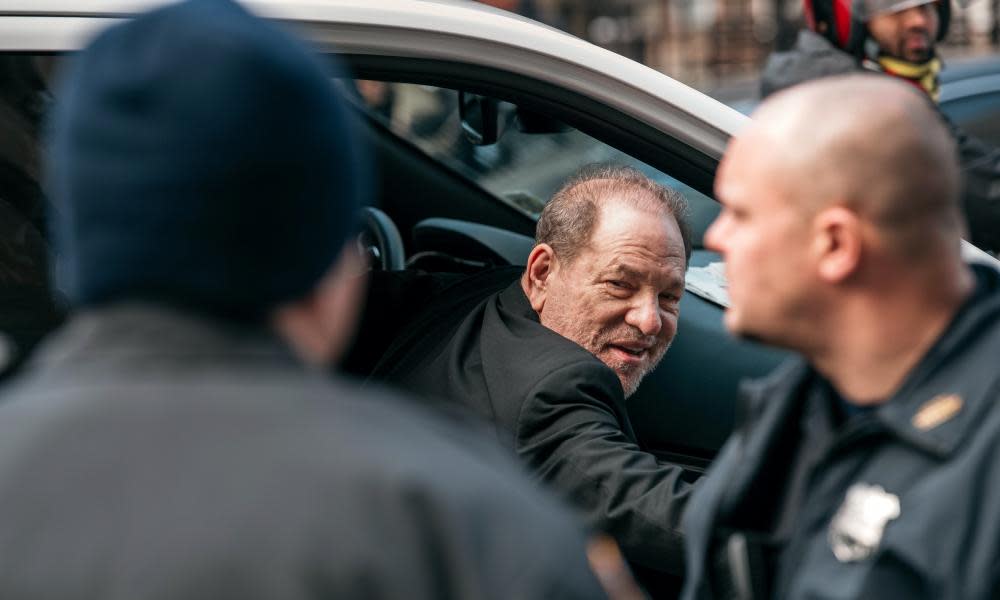Harvey Weinstein trial is 'not a referendum on #MeToo', says judge

The judge presiding over the rape trial of fallen movie mogul Harvey Weinstein has instructed potential jurors that the proceedings are not a referendum on the #MeToo movement.
James Burke of the New York supreme court issued his directive as jury selection entered its final stage on Thursday. Addressing a pool of about 140 people, he was blunt about the limits of the decision they would be asked to make if chosen to sit on the jury.
Related: Gigi Hadid dismissed as juror in Harvey Weinstein trial
“This trial is not a referendum on the #MeToo movement,” he said. “It is not a referendum on sexual harassment. It is not a referendum on women’s rights.”
When several women came forward to allege they were sexually assaulted or harassed by Weinstein in reporting by the New York Times and New Yorker in October 2017, they sparked a convulsion that has been likened to a social revolution. Thousands of women followed suit with their own stories of enduring sexual misconduct at the hands of powerful men.
The #MeToo movement, as it came to be known, rocked many walks of public life, from Hollywood and the media to Congress and even the fast-food industry.
Burke said jurors were entitled to hold “strongly held beliefs” about those issues, but they were not relevant in this case. “The sole issue is for you to decide whether or not the defendant committed certain acts which constitute a particular crime … You must decide this case on the evidence.”
The jurors are entitled to their own opinions about #MeToo, sexual harassment and women’s rights, he said, so long as they don’t allow those opinions to influence the verdict they must reach that will seal Weinstein’s fate.
But even before the trial began on 6 January, the criminal prosecution of Weinstein had become detached in notable ways from #MeToo. Not least, the numbers of women testifying in the trial is likely to be a fraction of the 105 women who have so far come forward to accuse the former film producer of sexual misconduct towards them.
Only two women are being presented in court as the accusers in this case, representing two counts of rape and one of a criminal sexual act. A further four women are expected to testify about earlier alleged sexual assaults at Weinstein’s hands which the prosecution will use to try to secure convictions on two counts that he engaged in predatory sexual assault – a pattern of behavior over many years that carries a maximum sentence of life in prison.
The number of women has been whittled down to a total of just six partly because it has been very difficult for prosecutors to persuade alleged victims to expose themselves so publicly to potential character assassination by Weinstein’s lawyers in cross-examination.
Other women complained of being sexually harassed by the producer – alleged acts that can be and have been pursued in civil litigation but which are not classed as crimes.
If selected, jurors will sit in judgment on a trial that will begin with opening statements next Wednesday and could last two months.


